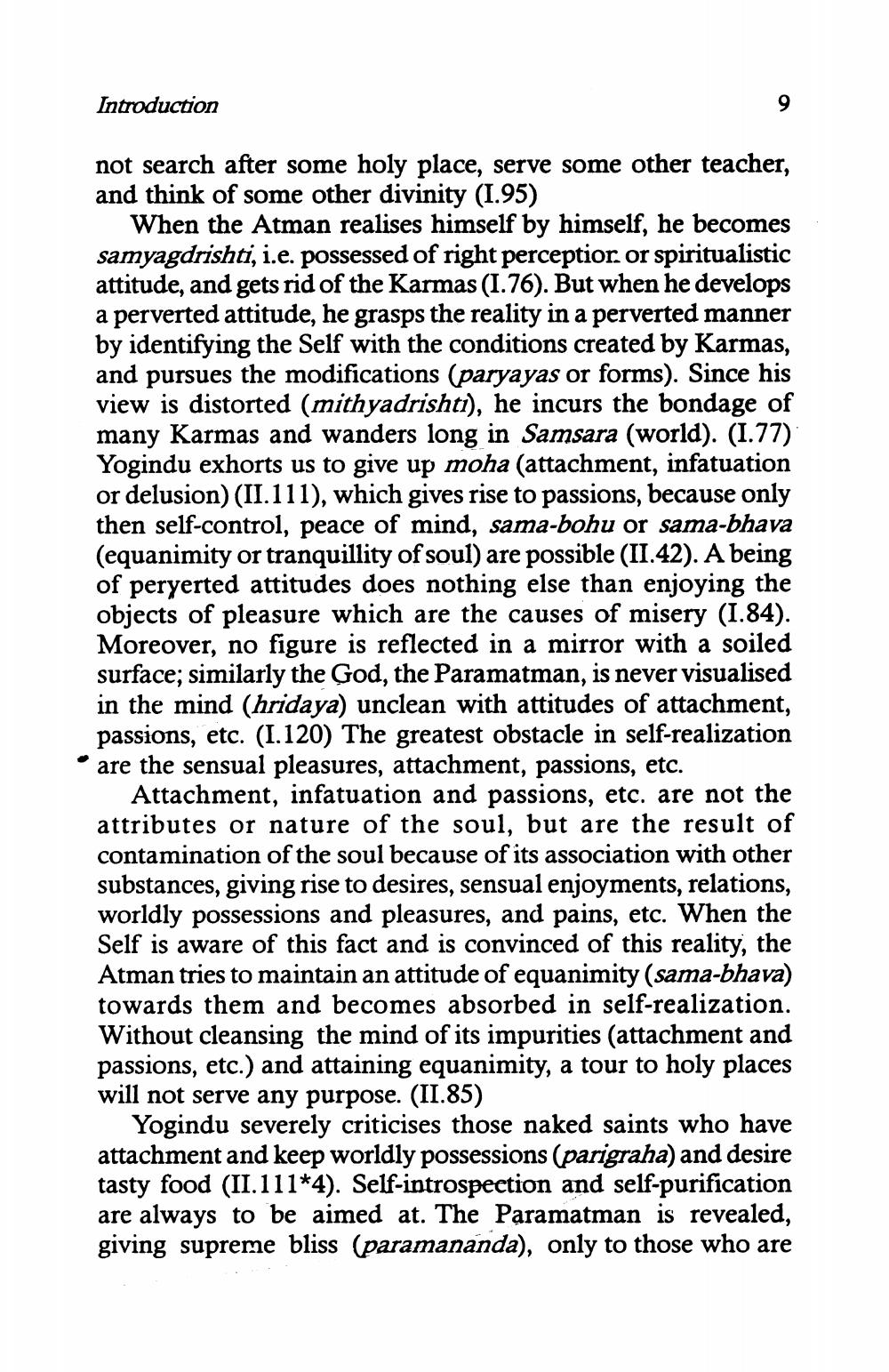________________
Introduction
not search after some holy place, serve some other teacher, and think of some other divinity (1.95)
When the Atman realises himself by himself, he becomes samyagdrishti, i.e. possessed of right perceptior or spiritualistic attitude, and gets rid of the Karmas (I.76). But when he develops a perverted attitude, he grasps the reality in a perverted manner by identifying the Self with the conditions created by Karmas, and pursues the modifications (paryayas or forms). Since his view is distorted (mithyadrishti), he incurs the bondage of many Karmas and wanders long in Samsara (world). (I.77) Yogindu exhorts us to give up moha (attachment, infatuation or delusion) (II.111), which gives rise to passions, because only then self-control, peace of mind, sama-bohu or sama-bhava (equanimity or tranquillity of soul) are possible (II.42). A being of peryerted attitudes does nothing else than enjoying the objects of pleasure which are the causes of misery (I.84). Moreover, no figure is reflected in a mirror with a soiled suri face: similarly the God, the Paramatman, is never visualised in the mind (hridaya) unclean with attitudes of attachment, passions, etc. (I.120) The greatest obstacle in self-realization * are the sensual pleasures, attachment, passions, etc.
Attachment, infatuation and passions, etc. are not the attributes or nature of the soul, but are the result of contamination of the soul because of its association with other substances, giving rise to desires, sensual enjoyments, relations, worldly possessions and pleasures, and pains, etc. When the Self is aware of this fact and is convinced of this reality, the Atman tries to maintain an attitude of equanimity (sama-bhava) towards them and becomes absorbed in self-realization. Without cleansing the mind of its impurities (attachment and passions, etc.) and attaining equanimity, a tour to holy places will not serve any purpose. (II.85)
Yogindu severely criticises those naked saints who have attachment and keep worldly possessions (parigraha) and desire tasty food (II.111*4). Self-introspection and self-purification are always to be aimed at. The Paramatman is revealed, giving supreme bliss (paramananda), only to those who are




